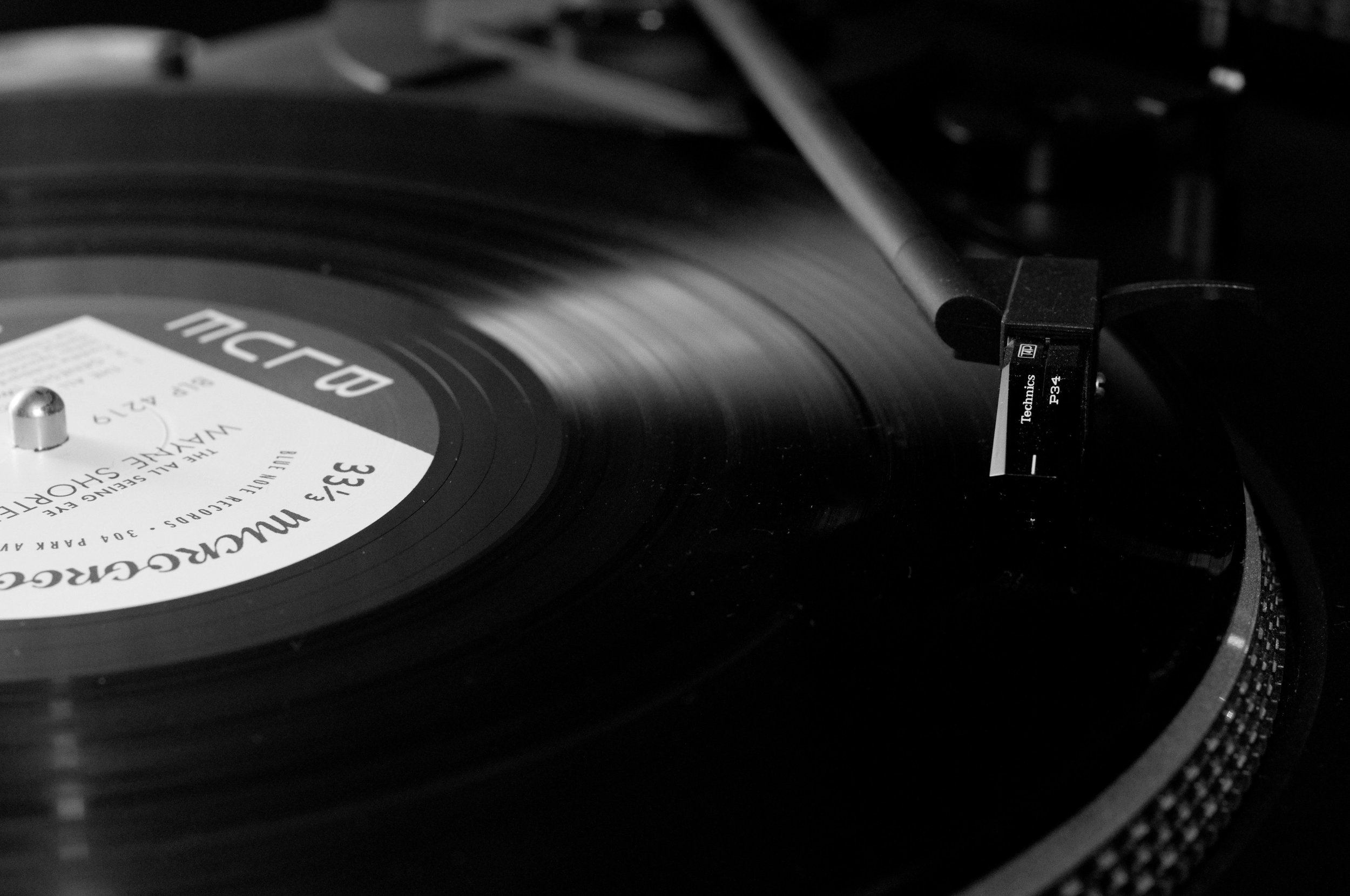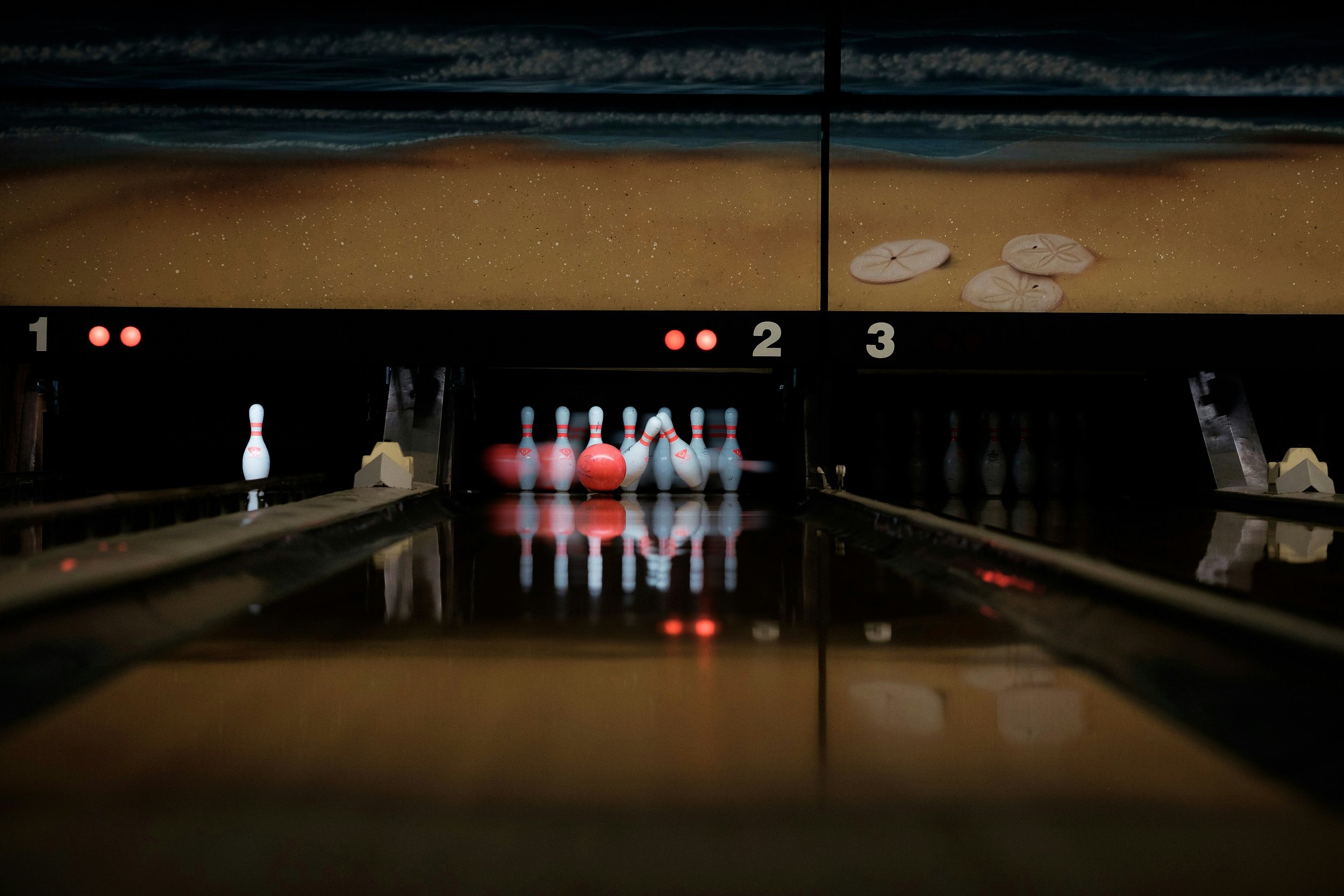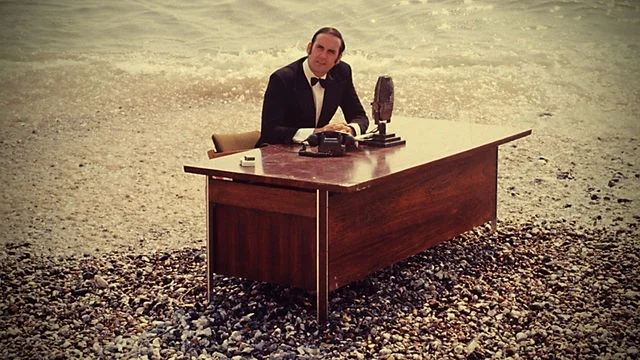FICTIONThe PatioJosh Rank
I was just sitting on the patio watching the bats fly around when her car pulled up. I didn’t know it was her at first, which was a bit of a gift. Another few peaceful moments enjoying the serene chirps as the bats blindly circled. A faint glow still hung in the sky, but she had her headlights on. I noticed the vague illumination through the thin bamboo fence bordering the patio. The neighbor across the street, that asshole, had been doing some form of construction for the last month, but the only result I could see were the work trucks that littered the side of our thin road, funneling traffic into the middle. So I didn’t pay much attention as the headlights turned off, the engine quieted itself, and the driver’s side door opened. It was so peaceful. For months I had been on edge. Nervous. Anxious. But as I sat on the patio with the bats flying above, train horn in the distance, a lawn mower buzzing somewhere softly, I was at peace.
But then the door closed, I looked up, and she said, “Hello.”
That was the end of my peaceful night.
The bats continued their maneuvers but they disappeared. As did the fading sunlight and approaching night sky, the bench beneath me, and the overgrown lawn mostly populated with weeds. There was only me and the voice, and I was taken back to two months prior.
“Goodbye,” was the last thing she said.
“Okay,” was the last thing I said.
Before that, there were a lot of buts and a few I still love yous but the order wasn’t important. The basic point was that even though we had spent the last three years seeing each other just about every day, the trend would not continue. To elaborate: It didn’t matter that I still loved her and she still loved me. More elaboration: Nobody did anything wrong. There was no point of incitation. There was an intangible and unnamable change in the reactive structure of emotion, and it would be untrue and unfair to both parties were the relationship to continue. The fact that this destroyed me to my core was not a factor in the end result.
I drove back to my hometown while she packed her things and moved out. This was decided before she said “Goodbye” and I said “Okay.” I would find a roommate. She would do the same. I knew it would be hard to stay in the house; every memory became a scar. The second bedroom that we thought of like a royal luxury. The broken refrigerator that wouldn’t close all the way. But most of all, the patio where I was watching the bats before I heard her voice again.
It was a mess. Well, it was at first. A big patch of dirt infused with bottle caps, cigarette butts, and for some reason, jagged chunks of broken red bricks. On the other side of the porch were four flowering perennials that concealed more non-biodegradable garbage as they spread their leaves throughout the summer. We were sick of coming home to a trashy field for a front lawn so we bought some tools. The plants were moved to the dirt pit and surrounded by mulch. The other side was weeded, cleaned, and covered with cement tiles. A wooden frame was erected and covered with bamboo. String lights were hung in a zig-zag fashion and tiki torches were attached to the posts. We’d pause before walking in the front door after work and quietly appreciate the structure. Pride would swell in my chest and I’d put my arm around her. The house was rented but the patio was ours. Planning, execution, expenses, we held the burden for every step of the process and neither of us could have done it alone. This patio was proof that we were not only a team, but a working machine that would cease to operate without all present parts. This patio was us, and I loved this patio. And then she said “Goodbye,” and I said “Okay,” and I couldn’t look at it for two months.
There wasn’t a day, probably not an hour, between “Goodbye,” and “Hello,” that I didn’t think of her voice. Of my voice. Of the physical effects of the intangible words on my body. Once the theme of the conversation had been solidified, I felt myself freeze inside. And two months later, listening to the bats on the bench on the patio, I knew only words could thaw me.
Halfway through her second syllable, I felt a crack in the ice.
“Hello,” she said.
I couldn’t see more than a person-shaped blob through the bamboo, but I didn’t need any more than that. The bats continued to chatter.
“I hope it’s okay I came over.”
“Yeah.” I cleared my throat. “Of course it is.”
“I found a place off of Riverside.”
“That’s a nice area.”
“It’s not bad.” She stood in the lawn and I still couldn’t really see her. I stayed seated on the bench. “Did you find a roommate?”
“No. No, not yet.” I felt my lip tremble. I was glad we couldn’t see each other.
“You know, I haven’t signed a lease or anything.”
The streetlights came on. The sunlight had faded and it was irrefutably dusk. The cracking ice inside me created sharp shards instead of a cooling pool. It was cutting into me and I hated the pain. It happened quickly.
“Listen, you can’t talk like that.” Tears rolled freely down my cheeks.
“I just, I don’t understand,” she said.
I accidentally yelled: “Me neither.” Quieter now: “Me neither. It’s just, I don’t know. It’s not right anymore.”
“People don’t just fall out of love for no reason.” She was crying now, too. I didn’t need to see her to know that.
“Apparently they do. I did.”
“But you said you still cared about me.”
“I do. I’ll always love you but, I don’t know, I’m not in love with you. God damn it that sounds so stupid.”
We paused and listened to each other cry. I couldn’t hear the bats anymore. With the light in the sky extinguished, I couldn’t see them either. There were just two people standing on opposite sides of a porous fence communicating through tears and sharp breaths. Nothing else besides the streetlight behind her and the slivers of ice bloodlessly tearing me up.
Then I heard her keys jingle as she pulled them from her purse.
“There’s really nothing else to say, is there?”
I wanted to tell her that I was madly in love with her, that I wanted her to move back in and get married and laugh every day and make dinner and build patios for the rest of our lives. But even more, I wanted all of that to be true. So instead, I said nothing.
Then she said, “Goodbye.”
And I said, “Okay.”
Josh Rank is a graduate from the University of Wisconsin-Milwaukee and has had stories published in The Missing Slate, The Feathertale Review, Hypertext Magazine, Drunk Monkeys, and elsewhere.













